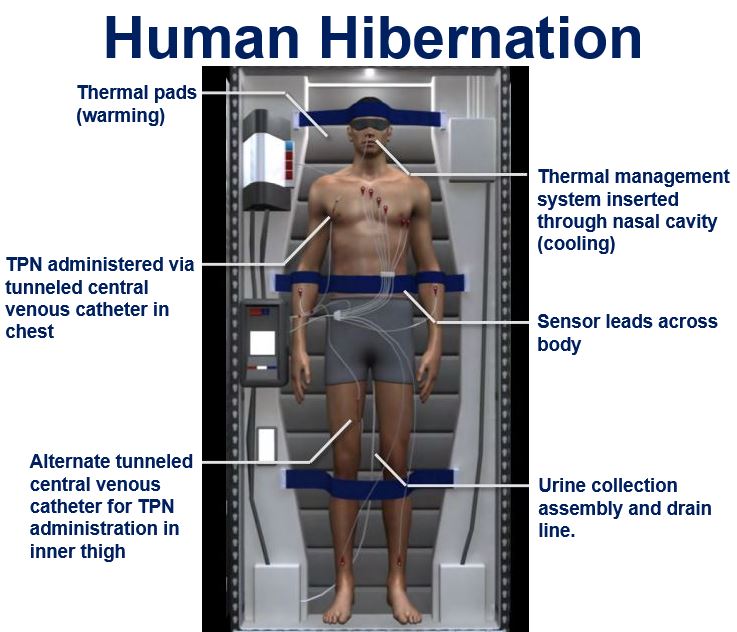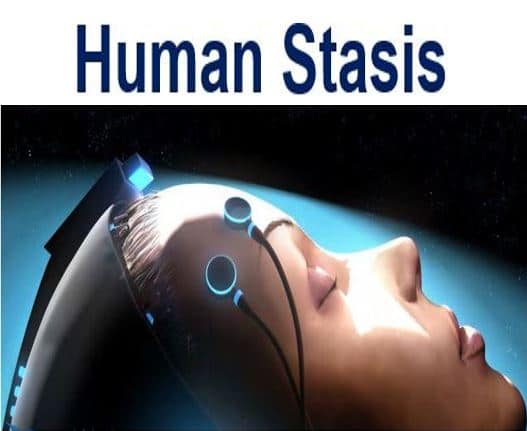Astronauts hibernating in space would mean spaceships could be made smaller and would not have to carry so much water and food, says the European Space Agency, which is currently looking at the techniques used by animal hibernators such as bears and determining whether they could be applied to humans.
The idea of human hibernation is not new, but research in this area so far has just been speculative. The nearest version we have is when brain surgeons cool their patients right down (therapeutic hypothermia) in order to extend surgeries. Therapeutic hypothermia is also used to treat people with epilepsy.
Human beings are not naturally designed to hibernate and survive a prolonged slowdown of metabolism.

NASA is already looking at ways (reference below) of slowing down human metabolism for its Mars mission. (Image: NASA)
Turning science fiction into reality
However, head of the advanced concepts team at the ESA (European Space Agency), Leopold Summerer, says current research could eventually put “some science fiction into the realm of science reality.”
Trials are currently underway to determine whether astronauts can be kept in a sleeplike state for days, and perhaps even weeks using temperature without any undesirable side effects.
If we are ever going to succeed in deep space travel, astronauts will have to be put in some kind of stasis, with hibernation being the most likely candidate. Unless, of course, we learn how to travel considerably faster.
In an interview with the Washington Post, Mr. Summerer said:
“We see the science has advanced enough to put some of the science fiction into the realm of science reality.”
“It doesn’t mean we will have hibernating astronauts anytime soon, but we are learning from nature how to understand some of the things that happen to animals during hibernation, such as preventing bone loss or preventing muscle loss. This is already something that would be a great benefit for long-distance spaceflight.”
In 2014, NASA funded a study to look into human hibernation. According to the US space agency, the benefits of hibernation for space travel include lower costs, less food and water required, a reduction in waste, and less space needed for entertainment and exercise.
Psychologists add that another major benefit might be overcoming the cabin-fever challenges associated with being in space for prolonged periods.
Space agencies in the US, Europe and Russia have spent millions investigating the physical and mental effects of living in space.

NASA wonders whether current therapeutic hypothermia techniques can be advanced to the point of enabling crew stasis periods of up to six months. (Image: NASA)
Identical twins study
Last year, NASA said it would be carrying out a study on identical twins to see how the body is affected by extended periods in space. Scott Kelly has been sent to the ISS (International Space Station) for a whole year, while his twin brother remains on Earth.
When Scott’s mission is over, researchers plan to compare the two brothers.
A panel of European scientists, including neurology specialists, biologists and biomedical researchers, is set to put forward a proposal for future lines of human hibernation research, says Mr. Summerer.
As a precursor to human trials, an Italian team says it will start an experiment this month to lower an animal’s body temperature for a six-hour period.
Lowering patients’ body temperature for therapeutic purposes has been used for thousands of years. Hippocrates, the ‘father of modern medicine’, (400 BCE) advocated the packing of wounded soldiers in snow and ice.
Napoleonic surgeon Baron Doinique Jean Larry noted that wounded soldiers who were kept closer to the fire survived less often than those that stayed in the cold.
Reference: “Torpor Inducing Transfer Habitat for Human Stasis to Mars,” John E. Bradford and Douglas Talk. NASA.
